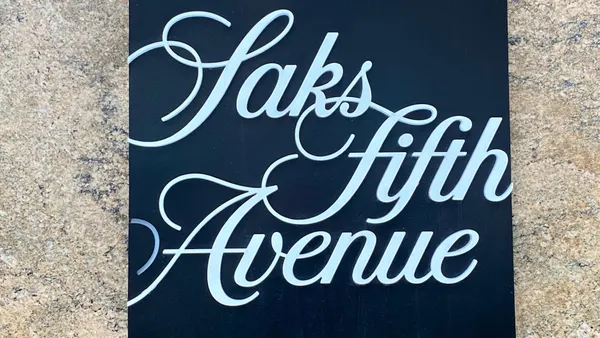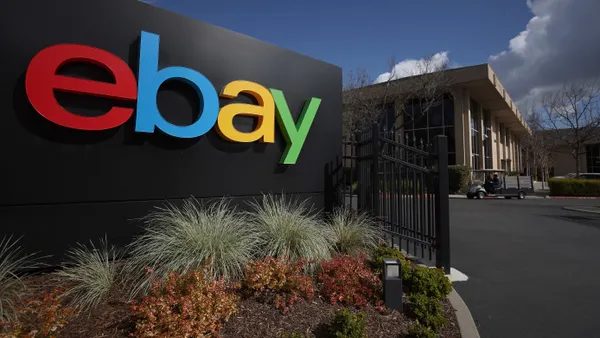Dive Brief:
- While 84% of executives polled said their companies have blockchain initiatives in progress, not many are very far along, and retail lags other industries that are seen as blockchain leaders, said a new survey from PwC.
- Of the 600 executives surveyed in 15 countries, only 15% said they have a live blockchain project and just 10% said they are running a blockchain pilot, reported PwC. Twenty percent are researching blockchain, 32% have projects in development, and a noteworthy 7% have paused their blockchain efforts. Among industries viewed as blockchain leaders, retail and consumer ranked near the bottom with 4%, topping only entertainment and media’s 1%. The financial services sector leads all others by a wide margin with 46%.
- PwC said one of the biggest obstacles to the adoption of blockchain — or distributed ledger technology — is a lack of trust among users, with 45% citing it as a top three concern. The leading barrier is regulatory uncertainty, with 48%. Trust is followed by the ability to bring networks together, with 44%; separate blockchains not working together, with 41%; intellectual property concerns, with 30%; inability to scale, with 29%; and audit/compliance concerns, with 20%.
Dive Insight:
Blockchain technologies are widely heralded for their potential to revolutionize how business is done, but the recent global study by PwC found that while a vast majority of companies are actively considering blockchain, there is relatively little progress advancing to live projects or pilots. A significant number have simply "paused" in their blockchain development.
Noteworthy is how low the PwC study ranks retail in blockchain leadership compared to other industries and contrasted with other studies. For instance, Deloitte recently reported that retailers and consumer packaged goods (CPG) manufacturers are among the best-positioned sectors to take advantage of blockchain, and that the technology would "revolutionize" those industries. Deloitte expects retail and CPG companies to reach widespread, long-term success with blockchain technology through careful planning.
Those benefits may turn out to be very impressive, according to a report from IHS Markit. Retail and e-commerce could see an estimated $164 billion in "probable" business value by 2030 due to a rise in the number of blockchain projects that are initiated and commercially deployed. This business value was $38 million in 2017. IHS Markit defined business value as the cost savings and efficiencies resulting from incorporating blockchain into business strategies.
Retailers are making progress on integrating blockchain technology into their operations. Walmart has filed patents for expanding the use of blockchain that mention applications such as vendor payments and digital shopping. American Express is launching a blockchain effort with Boxed to customize rewards for cardholders. Starbucks is piloting a program to create transparency by tracing coffee beans from Costa Rica, Colombia and Rwanda. JD.com has launched AI Catapult, an accelerator for the development of artificial intelligence and blockchain technologies. Amazon has registered three Internet domain names relevant to the blockchain and cryptocurrency movement. And Rakuten is planning a new cryptocurrency called Rakuten Coin.
Additionally, IBM is very involved in blockchain. The company has partnered with A.P. Moller-Maersk, the world's largest ocean container shipping company, on a joint venture that aims to use blockchain technology to make worldwide cross-border commerce and shipping more efficient. In another move, IBM has joined with blockchain company Stellar.org and payments firm KlickEx Group to develop IBM Blockchain, which will help banks speed up, improve the reliability and lower the cost of processing of cross-border payments.
The bottom line, according to the PwC survey is that "no one wants to be left behind by blockchain, even if at this early stage of its development, concerns on trust and regulation remain," said Steve Davies, blockchain leader, PwC, in a press release. "A well-designed blockchain doesn’t just cut out intermediaries, it reduces costs, increases speed, reach, transparency and traceability for many business processes. The business case can be compelling, if organizations understand what their end game is in using the technology, and match that to their design."











